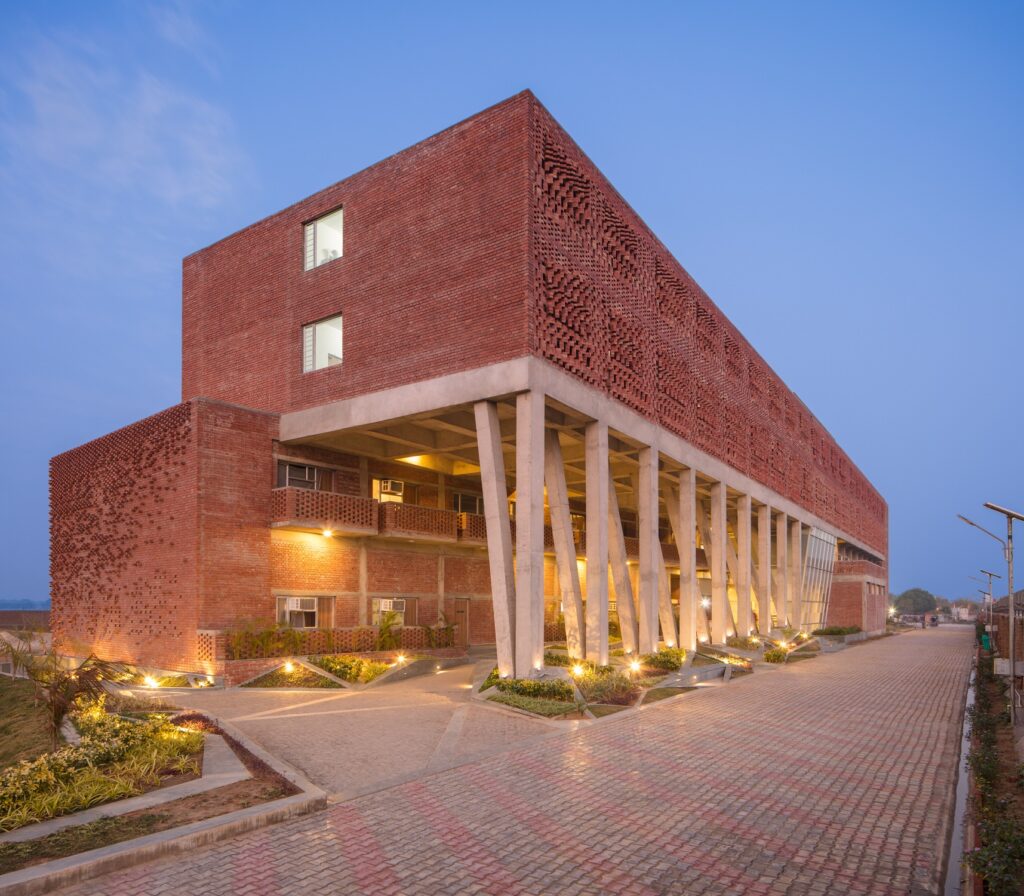What is D Pharma
D.Pharm (Diploma in Pharmacy) is a two-year diploma course that provides foundational knowledge in pharmaceutical sciences. What is D Pharma? It’s a program covering essential subjects like pharmacology, pharmaceutical chemistry, and drug dispensing, preparing students for a career in pharmacy.
The course is designed to train students for entry-level positions in pharmacies, hospitals, and the pharmaceutical industry. Graduates of D.Pharm are qualified to work as pharmacists, where they assist in the preparation and distribution of medications, offer guidance on drug use, and manage pharmacy operations.
D.Pharm also serves as a stepping stone for further studies in pharmacy, such as B.Pharm or M.Pharm, for those seeking advanced careers in the field.
Some of the most opted courses in India and St. Andrews college or different Engineering college or Management colleges are as follows:-
- Btech
- MTech
- Btech CSE
- BBA
- Btech ETCE
- BCA
- MBA
- MCA
- DPharma – St. Andrews College of Pharmacy
- BPharma – St. Andrews College of Pharmacy
- BArch – St. Andrews College of Architecture
D Pharma Course Details
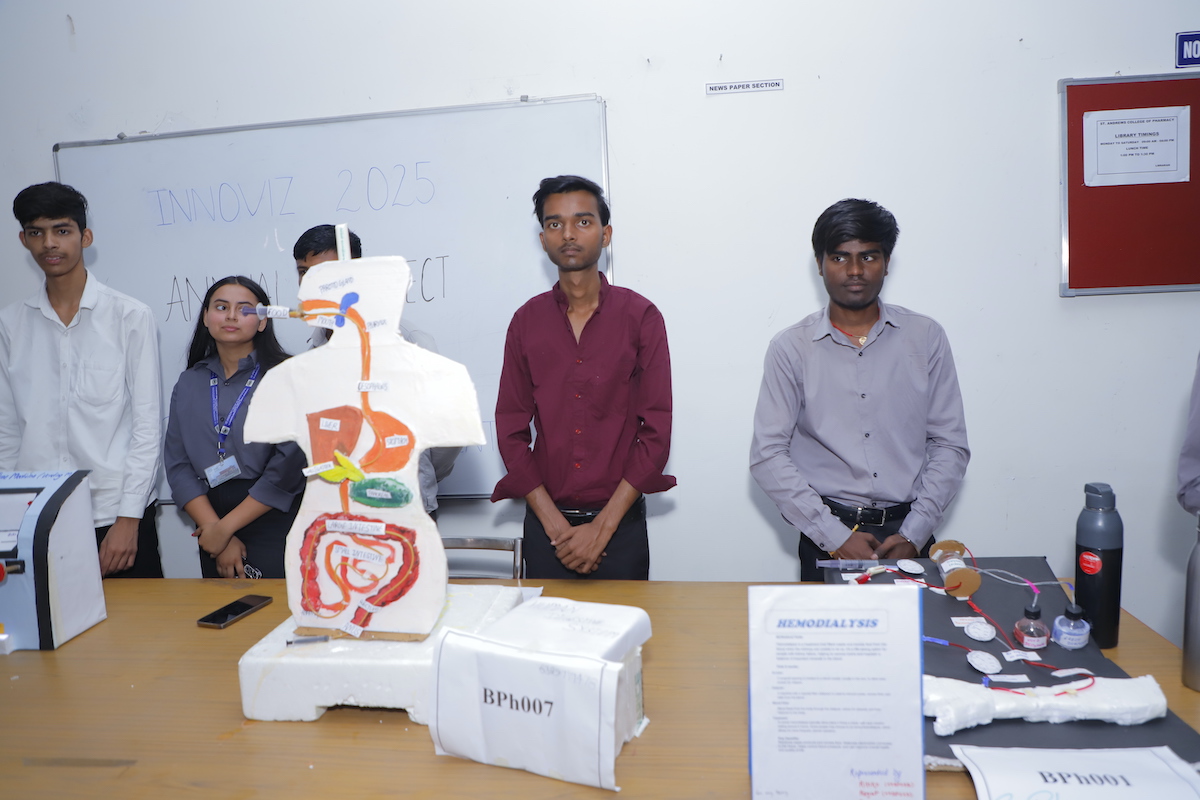
Duration: 2 years (4 semesters) with a mandatory 3-month internship.
Eligibility: 10+2 with Science (Physics, Chemistry, Biology/Mathematics), usually with a minimum of 50% marks.
Core Subjects
- First Year: Pharmaceutics, Pharmaceutical Chemistry, Pharmacognosy, Biochemistry, Anatomy, Health Education.
- Second Year: Advanced Pharmaceutics, Pharmaceutical Jurisprudence, Pharmacology, Drug Store Management, Hospital Pharmacy.
Career Opportunities: Community Pharmacist, Hospital Pharmacist, roles in Pharmaceutical Industry, Regulatory Affairs.
Higher Studies: B.Pharm (Bachelor of Pharmacy) or specializations in pharmaceutical sciences.
Admission Process: Merit-based or entrance exams depending on the institution.
Fees: Typically INR 20,000 to INR 1,00,000 per year.
DPharma Eligibility Criteria
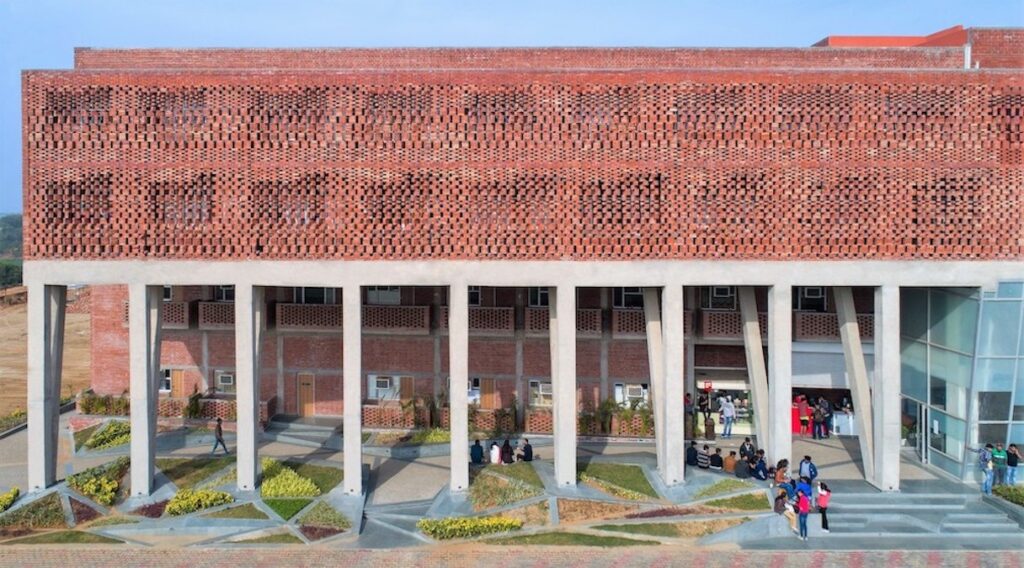
The eligibility criteria for the Diploma in Pharmacy (D.Pharm) program typically include the following:
Educational Qualification
Minimum Requirement: Candidates must have completed 10+2 (Higher Secondary or equivalent) with Science subjects.
Subjects Required: Physics, Chemistry, and Biology/Mathematics.
Minimum Marks: Generally, a minimum of 50% aggregate marks in 10+2 is required, though this may vary by institution.
Age Limit
Minimum Age: Candidates should be at least 17 years old at the time of admission.
Maximum Age: Some institutions may have an upper age limit, though it is uncommon.
Entrance Exam
Entrance Test: Some institutions may require candidates to clear a state-level or institution-specific entrance examination.
Additional Criteria
Health Criteria: Candidates may need to meet certain health and fitness standards as required by the institution.
DPharma Admission Process

The admission process for the Diploma in Pharmacy (D.Pharm) program typically involves the following steps:
Meeting Eligibility Criteria
Ensure you meet the eligibility criteria, including the necessary educational qualifications, age limit, and any specific conditions set by the institution for obtaining a registered pharmacy qualification.
Application Form Submission
Application Mode: Applications can be submitted online or offline, depending on the institution.
Required Documents: You’ll need to submit your 10+2 mark sheets, identity proof, photographs, and other necessary documents.
Application Fee: Pay the required application fee as specified by the institution.
Entrance Examination (If Applicable)
Exam Registration: Register for any entrance exam required by the institution or state authority.
Preparation: Prepare for the entrance exam, which may cover subjects like Physics, Chemistry, Biology, and Mathematics.
Exam Date: Appear for the entrance examination on the specified date.
Merit List/Entrance Exam Result
Merit-Based Admission: Some institutions admit students based on their 10+2 marks, publishing a merit list.
Entrance Exam Result: If an entrance exam is involved, the institution will release a rank list based on exam scores.
Counselling Process
Counselling Registration: Register for the counseling process if required by the institution.
Choice Filling: Choose preferred colleges and courses during counseling.
Document Verification: Attend counseling sessions where your documents will be verified.
Seat Allotment: Based on your rank and preferences, a seat will be allotted.
Payment of Fees
Fee Payment: Secure your spot in the D.Pharm program by paying the admission fees.
Receipt Collection: Collect the fee receipt and any other confirmation documents.
Admission Confirmation
Reporting to College: Report to the allotted college on the specified date with all required documents and fee receipts.
Orientation: Some institutions may conduct an orientation program for new students.
Commencement of Classes
Classes for the D Pharm degree typically commence after the completion of the admission process.
D Pharma Course Fees
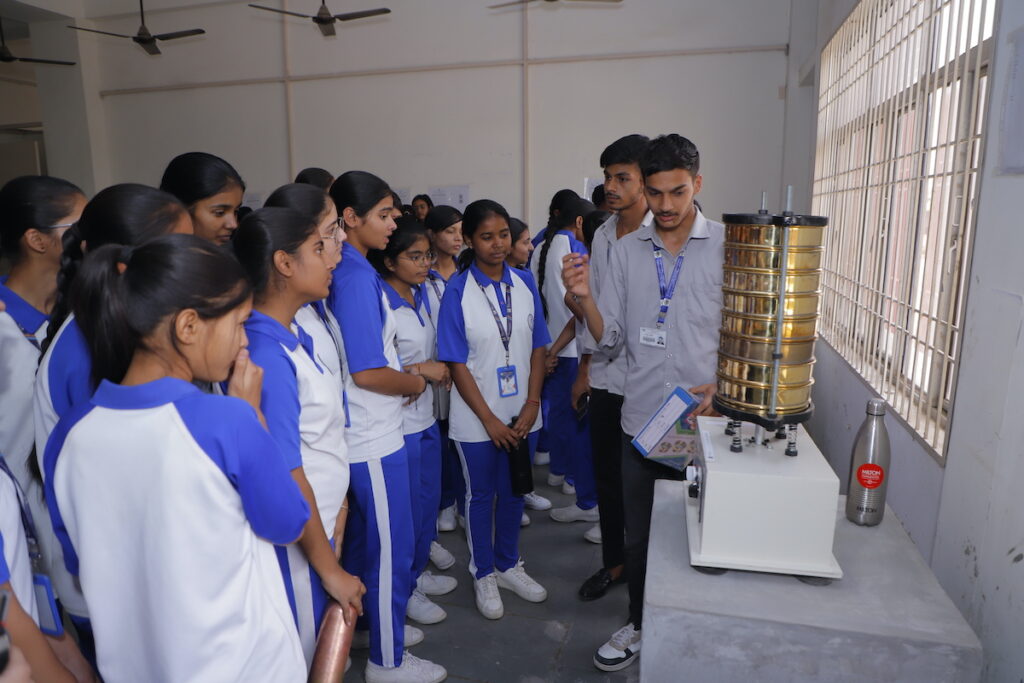
The fees for a Diploma in Pharmacy (D.Pharma) course can vary widely depending on the institution and location. Here is a general idea of the fee structure:
Government Colleges
- Range: ₹10,000 to ₹50,000 per year
- Details: Typically lower fees due to government subsidies.
Private Colleges
- Range: ₹50,000 to ₹2,00,000 per year
- Details: Fees are generally higher in private institutions due to the lack of government funding.
Additional Costs
- Library Fees: ₹1,000 to ₹3,000 annually
- Laboratory Fees: ₹2,000 to ₹5,000 annually
- Examination Fees: ₹1,000 to ₹2,000 per year
- Miscellaneous Fees: ₹2,000 to ₹5,000 (for activities, insurance, etc.)
Entrance Exam for DPharma
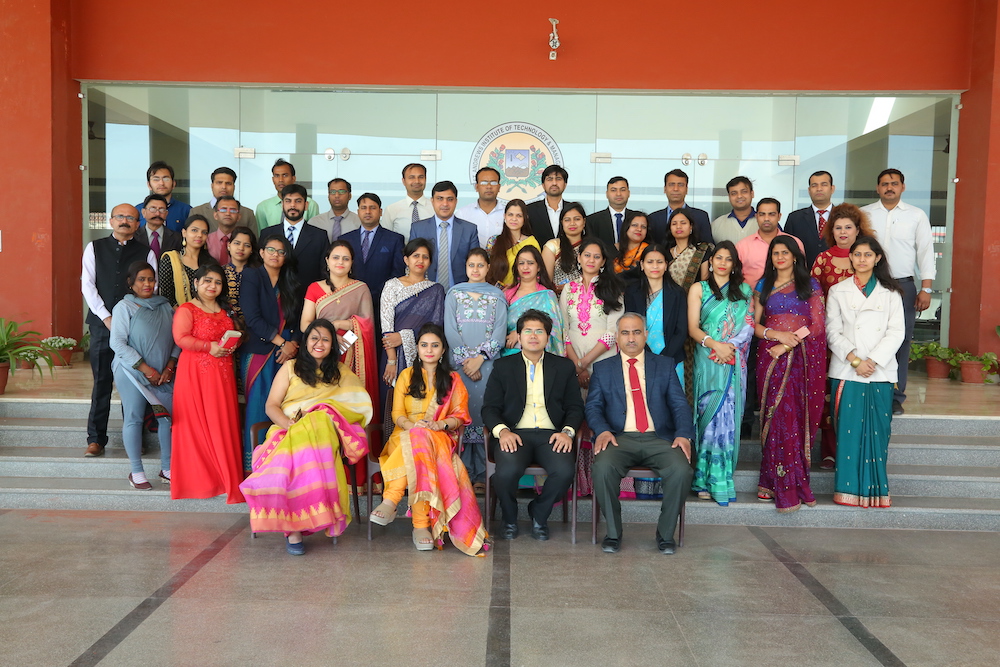
The entrance exams for a Diploma in Pharmacy (D.Pharm) typically include:
State-Level Entrance Exams
- Description: Many states in India conduct their own entrance exams for admission to D.Pharm programs.
- Examples: Maharashtra CET, Punjab CET, etc.
Institution-Specific Entrance Exams
- Description: Some colleges and universities conduct their own entrance tests or admission procedures for D.Pharm.
- Examples: Specific tests conducted by private pharmacy colleges or universities.
General Eligibility
- Criteria: Most D.Pharm programs do not require a specific entrance exam but base admission on merit from the 10+2 examination, typically with a background in science (Physics, Chemistry, Biology).
Common Admission Process
- Merit-Based Admission: Many institutions admit students based on their high school (10+2) academic performance and may not require a specific entrance exam.
DPharma Scope

Here’s an overview of the potential scope:
Retail Pharmacy
- Role: Work as a pharmacist in retail settings, managing prescriptions, advising patients, and handling medication inventory.
- Opportunities: Community pharmacies, drug stores, and online pharmacies.
Hospital Pharmacy
- Role: Manage medication for patients in hospitals, collaborate with healthcare teams, and provide patient care.
- Opportunities: Hospitals, clinics, and healthcare facilities.
Clinical Pharmacy
- Role: Focus on patient care, optimize medication therapy, and improve therapeutic outcomes.
- Opportunities: Clinical settings, outpatient care centers, and specialized medical facilities.
Pharmaceutical Manufacturing
- Role: Participate in the production, quality control, and packaging of pharmaceutical products.
- Opportunities: Pharmaceutical companies, manufacturing units, and production facilities.
Quality Assurance and Control
- Role: Ensure the quality and safety of pharmaceutical products through rigorous testing and compliance checks.
- Opportunities: Quality control labs, regulatory agencies, and pharmaceutical firms.
Pharmaceutical Sales and Marketing
- Role: Promote and sell pharmaceutical products, develop marketing strategies, and manage client relationships.
- Opportunities: Pharmaceutical companies, marketing agencies, and sales departments.
Regulatory Affairs
- Role: Manage regulatory compliance for drug approval and market access, handle documentation, and liaise with regulatory bodies.
- Opportunities: Regulatory agencies, pharmaceutical companies, and compliance departments.
Drug Research and Development
- Role: Engage in the research and development of new drugs, conduct clinical trials, and work on drug formulation.
- Opportunities: Research institutions, pharmaceutical companies, and clinical research organizations.
Herbal and Alternative Medicine
- Role: Study and provide alternative and herbal remedies, work with natural products and traditional medicine.
- Opportunities: Herbal medicine companies, alternative health practices, and research institutes.
Teaching and Training
- Role: Educate and train future pharmacy professionals, develop curriculum, and contribute to academic institutions.
- Opportunities: Educational institutions, training centers, and online platforms.
Entrepreneurship
- Role: Start and manage your own pharmacy, consulting business, or drug store.
- Opportunities: Independent pharmacy ownership, consulting services, and business ventures.
Government Jobs
- Role: Work in various government sectors such as drug inspector, pharmaceutical officer, or in public health initiatives.
- Opportunities: Government agencies, public health organizations, and regulatory bodies.
Top Diploma Pharmacy Colleges in India
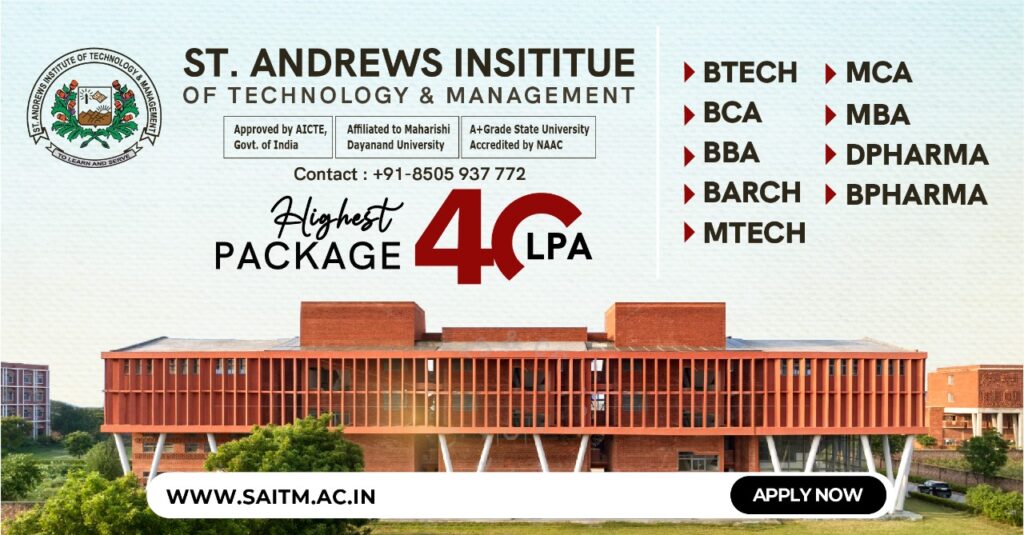
Here are some top diploma pharmacy colleges in India:
Delhi Institute of Pharmaceutical Sciences and Research (DIPSAR), Delhi
- Overview: Premier institute for pharmacy education and research.
- Key Highlights: Excellent infrastructure, research opportunities, and strong industry connections.
St. Andrews College of Pharmacy (SACP), Gurgaon
- Overview: Known for its pharmaceutical engineering programs.
- Key Highlights: High-quality education, extensive research facilities, and good placement opportunities.
Jamia Hamdard University, Delhi
- Overview: Renowned for its pharmacy programs with a focus on research and practical training.
- Key Highlights: Modern facilities, experienced faculty, and strong placement record.
Nirmala College of Pharmacy, Kerala
- Overview: A leading institution in pharmacy education in Kerala.
- Key Highlights: Experienced faculty, modern infrastructure, and good placement opportunities.
Rajiv Gandhi University of Health Sciences (RGUHS), Bangalore
- Overview: Provides high-quality pharmacy education and training.
- Key Highlights: Good infrastructure, experienced faculty, and strong industry connections.
Punjab University, Chandigarh
- Overview: Offers a diploma in pharmacy with a focus on comprehensive education.
- Key Highlights: Good infrastructure, research opportunities, and strong academic suppor
Career Opportunities for Registered Pharmacist

Here are some prominent career paths:
Community Pharmacist
- Role: Dispense medications, provide patient counseling, manage inventory, and offer health advice, all while upholding the standards of the pharmacy profession.
- Workplaces: Retail pharmacies, drugstores, and online pharmacies.
Hospital Pharmacist
- Role: Manage medications for hospitalized patients, work with healthcare teams to optimize treatment, and ensure safe medication practices.
- Workplaces: Hospitals, clinics, and healthcare facilities.
Clinical Pharmacist
- Role: Focus on improving patient outcomes through medication management, conduct medication reviews, and work in specialized areas like oncology or cardiology.
- Workplaces: Outpatient care centers, specialized medical facilities, and clinics.
Pharmaceutical Industry
- Roles:
- Medical Science Liaison: Act as a bridge between the pharmaceutical company and the medical community.
- Pharmaceutical Sales Representative: Promote and sell pharmaceutical products to healthcare providers.
- Drug Development Specialist: Engage in research and development of new drugs.
- Workplaces: Pharmaceutical companies, biotech firms, and research organizations.
Quality Assurance and Control
- Role: Ensure the quality, safety, and efficacy of pharmaceutical products through testing and compliance with regulations.
- Workplaces: Quality control labs, pharmaceutical manufacturing units, and regulatory agencies.
Regulatory Affairs Specialist
- Role: Manage regulatory submissions, ensure compliance with drug approval processes, and liaise with regulatory authorities.
- Workplaces: Regulatory agencies, pharmaceutical companies, and compliance departments.
Academia and Research
- Role: Teach pharmacy students, conduct research, and contribute to advancements in pharmaceutical sciences.
- Workplaces: Educational institutions, research institutes, and universities.
Drug Information Specialist
- Role: Provide information and guidance on drug-related queries, assist healthcare professionals in medication management.
- Workplaces: Hospitals, poison control centers, and drug information centers.
Pharmaceutical Consulting
- Role: Offer expert advice on pharmaceutical practices, medication management, and regulatory compliance.
- Workplaces: Consulting firms, independent practice, and healthcare organizations.
Health and Wellness Advisor
- Role: Provide advice on health, wellness, and lifestyle changes, and promote preventive care.
- Workplaces: Wellness centers, health clubs, and community health programs.
Entrepreneurial Ventures
- Role: Start and manage a pharmacy business, consulting firm, or related enterprise.
- Opportunities: Independent pharmacy ownership, pharmacy consultancy, and health product startups.
Government and Public Health
- Role: Work in various government roles such as drug inspector, public health officer, or in health policy development.
- Workplaces: Government health departments, public health agencies, and regulatory bodies.
Salary and Growth Prospects After DPharma

Entry-Level Positions
- Salary: Typically ranges from ₹15,000 to ₹30,000 per month.
- Roles: Retail Pharmacist, Medical Sales Representative, Pharmacy Technician.
Mid-Level Positions
- Salary: Ranges from ₹30,000 to ₹60,000 per month.
- Roles: Pharmacist in Hospitals, Drug Inspector, Pharmaceutical Sales Manager.
Senior-Level Positions
- Salary: Ranges from ₹60,000 to ₹1,00,000+ per month.
- Roles: Clinical Pharmacist, Pharmacy Manager, Regulatory Affairs Specialist.
Growth Prospects
- Specialization: Pursuing higher qualifications (e.g., B.Pharma, M.Pharma) or certifications can lead to advanced roles and higher salaries.
- Job Areas: Opportunities in hospitals, retail pharmacies, pharmaceutical companies, and government agencies.
- Entrepreneurship: Potential to start your own pharmacy or consultancy.
FAQs
What does D-Pharm do?
A Diploma in Pharmacy (D.Pharm) is a foundational course that prepares students to work as pharmacists or in pharmaceutical-related roles. It typically spans two years, covering subjects like pharmacology, pharmaceutical chemistry, and drug dispensing.
Graduates are trained to assist in preparing and distributing medications, offer guidance on drug usage, and manage pharmacy operations. What is D Pharma? It’s a foundational course that serves as a stepping stone for further studies in pharmacy or related fields, enabling graduates to enter roles in community pharmacies, hospitals, or the pharmaceutical industry.
It forms the foundation for advanced studies in pharmaceutical science and pharmacy practices, and graduates can pursue opportunities in pharmacy schools to expand their expertise and advance their careers in the pharmacy business.
What is the Duration of DPharma Course
The Diploma in Pharmacy (D.Pharm) is a 2-year program designed to provide foundational knowledge and practical skills in pharmaceutical sciences.
The pharmacy programme is divided into 4 semesters, covering essential subjects like Pharmaceutics, Pharmaceutical Chemistry, Pharmacology, and Pharmaceutical Jurisprudence.
In addition to classroom learning, students are required to complete a mandatory 500-hour (3-month) internship in a recognized hospital or pharmacy, gaining hands-on experience in drug dispensing and pharmacy operations. This practical training is crucial for preparing graduates to enter the workforce in community pharmacies, hospitals, or the pharmaceutical industry.
Which is better, B Pharm or D Pharm?
B.Pharm (Bachelor of Pharmacy) and D.Pharm (Diploma in Pharmacy) serve different purposes. B.Pharm is a four-year undergraduate degree offering a deeper understanding of pharmaceutical sciences, including drug development, clinical research, and patient care.
It opens broader career opportunities in research, clinical practice, and higher education. D.Pharm is a two-year diploma focusing on basic pharmacy knowledge, suitable for entry-level roles in community pharmacies or hospital settings.
If you’re aiming for advanced career prospects and higher qualifications, pursuing a B.Pharm is a better option. For quicker entry into the workforce, a Pharmacy Diploma (D.Pharm) is more suitable. The choice depends on your career goals and time commitment.
D.Pharm graduates, holding a pharmacy diploma, often need to be registered with the Pharmacy Council, which supports their professional practice and ensures compliance with legal standards in the pharmacy profession.
What is an Online D Pharmacy Course?
An online Pharmacy course offers foundational education in pharmacy through virtual lectures and e-learning, covering essential subjects like Pharmaceutics and Pharmacology. While theoretical knowledge is gained online, practical training typically requires in-person sessions. This form diploma provides flexibility for students, but it must be accredited by the Pharmacy Council to ensure legitimacy in the online pharmacy profession.
What is the job of D Pharma?
A D.Pharm graduate’s job involves dispensing medications, advising patients on proper drug usage, managing pharmacy operations, and ensuring the safe and effective distribution of pharmaceuticals.
They apply their knowledge of pharmaceutical jurisprudence to uphold legal and ethical standards in medication practices. What is D Pharma? It’s a field where professionals work in community pharmacies, hospitals, or the pharmaceutical industry, serving as a vital link between healthcare providers and patients.
Is D Pharma equal to doctor?
No, a Diploma in Pharmacy (D.Pharm) is not equivalent to a medical degree. D.Pharm graduates are trained to dispense medications and provide pharmaceutical care, focusing on medication management rather than diagnosing or treating medical conditions.
They do not have the qualifications or authority to practice medicine like a doctor. What is D Pharma? It’s a field focused on pharmaceutical jurisprudence, managing prescriptions, and ensuring the safe and effective use of medications, rather than on medical diagnosis or treatment.




